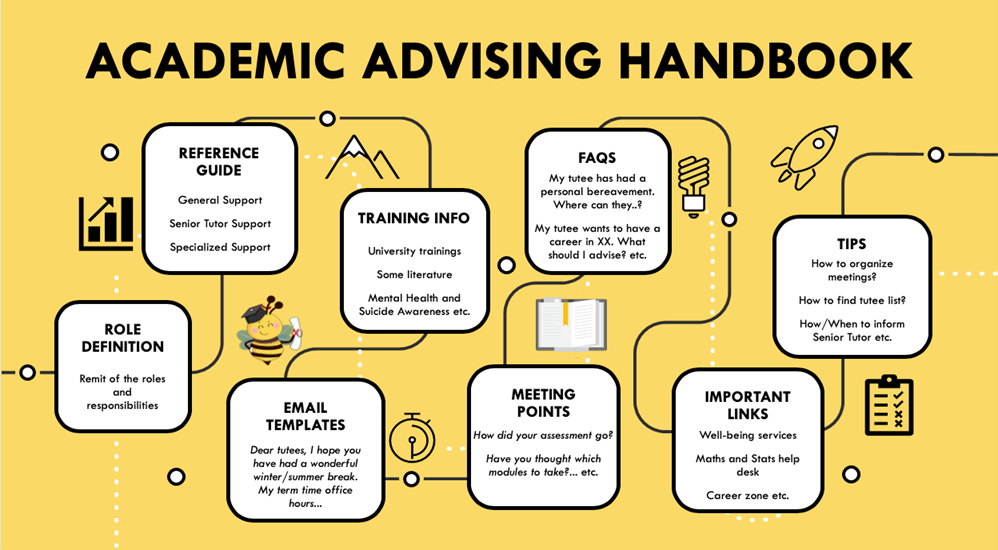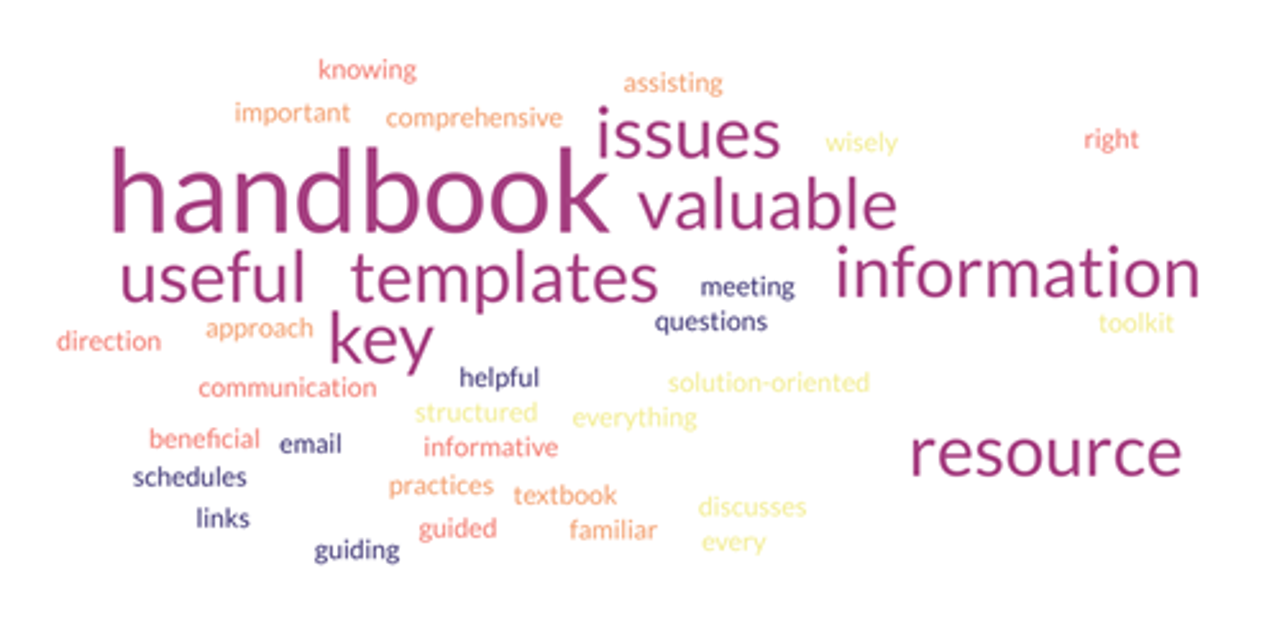
Guidance for academic advising in economics
Introducing a Handbook for Academic Advisors in a University Economics Department
Read a summary using the INOMICS AI tool
Introduction
Academic advising refers to the process where appointed members of staff provide academic guidance, information signposting and other relevant non-academic forms of support to students to help promote their success and improve their overall higher education experience (Medernach, 2018).
Its role has long been recognised as crucial for supporting students, especially those from under-represented minorities (Smith et al, 2009; Young-Jones et al, 2013).
While practices across the UK and Europe appear similar in their foundations, the diverse nature of student cohorts suggests some different institutional priorities.
At the university of Exeter, taking into account these different approaches, we introduced a handbook for academic advisors in the Economics Department. Here we share our experience.
Examples of academic advising from the UK and Europe
A common theme across European and UK universities is a proactive approach to academic advising for student success, though delivery varies due to cultural and institutional differences.
In Europe, institutions like Tubingen and Mannheim (Germany) offer students specialised advisory support that is tailored to the academic structures of their respective institution. In addition, many European universities provide walk-in or scheduled appointments with specialised study advisors to ensure timely support.
At Tubingen School of Business and Economics, academic counsellors guide students on course selection, exam preparation and career planning. Mannheim’s economics department follows a similar structure, focusing on key programme requirements for academic success.
In the Netherlands, the Utrecht School of Economics employs ‘study advisors’ to assist with, for example, study planning and academic skills development.
While German and Dutch universities often follow structured advisory methods, UK universities emphasise personalised one-to-one support through assigned advisors (Jennings, 2021).
In the UK, universities like Oxford Brookes, Bath and Warwick, assign each student an academic advisor for academic progress and personal development support.
Academic support can include guidance on module selection, academic performance and progression, while non-academic support involves referrals to student services, like the wellbeing team. Many universities encourage regular advisor meetings to ensure continued support throughout the academic year – the University of Manchester is one such example.
Common challenges
Despite differing approaches between cultures, countries and each institution, academic interventions are often required in all systems to enhance student experience. The frequency and nature of these interventions can present challenges to the academic advisor on the best way to address students’ needs.
Many academics recognise advising as a core job requirement. But high student-to-staff ratios in some departments can exacerbate capacity and workload issues as academics struggle to balance advising, teaching and administrative responsibilities (Mikluscak, 2010).
This can have a knock-on effect of limiting staff engagement in the academic advising role and university level online training (Rogerson et al, 2024). Indeed, access to professional development and training is a major challenge often faced by academic advisors. This can be particularly acute if universities face funding and resource constraints. What’s more, generic training can be insufficient and fail to provide discipline-specific advising skills.
However, supporting academic advisors is crucial for ensuring a robust academic experience, especially for underprepared and struggling students. To address these challenges, the University of Exeter’s economics department reformed its academic advising process to streamline workload and provide specialised support for colleagues.
Standardising academic advising
As discussed, high workloads can be a challenge but effectively managing these can help academic staff to cultivate strong advisor-student relationships (McIntosh et al, 2022).
To help in this regard, within the University of Exeter economics department, we have provided tailored support to streamline the academic advising role for colleagues. A central part of this includes an academic advisor (AA) handbook for staff.

Figure 1: Different example topics in the AA handbook
Figure 1 shows some of the key sections in the handbook. For example, it includes a clear AA role descriptor and detailed guidelines on related responsibilities. Guidance on providing consistent answers to students’ frequently asked questions (FAQs) is also provided.
In addition, the handbook offers email templates for all regular advisor check-ins, like ‘before assessments’, and ‘after examination results are released’.
Our goal in developing this resource was to provide colleagues with a point of reference for all queries related to the AA role. We set out to ensure consistency with the departmental process and to increase the overall quality of our academic and pastoral care for students. We shared this handbook with colleagues in physical and online format and host this in departmental shared documents and signpost new (and old) colleagues to the resource regularly. The handbook is updated yearly with any institutional policy changes, and the FAQ section is revised based on new and regular student queries.
Evaluation and feedback
To assess the impact of our staff-support initiative, we asked colleagues to provide us with feedback on their use of the handbook. One colleague referred to it as “a clear, thorough, and useful handbook. A necessary companion for anyone acting in the role of tutor”. Another stated that “the FAQ section has been immensely useful for answering students' questions”.
The following word cloud shows key sentiments about the handbook.

Figure 2: Colleague feedback on AA handbook over two years
In addition, there were also some suggestions for future improvements, such as “more subcategories for typical questions, for ease of reference”.
Conclusion
The role of the academic advisor is becoming increasingly important in universities, particularly in response to rising student mental health concerns.
The introduction of the AA handbook at the University of Exeter’ economics department has proven to be impactful and helps to fill existing gaps around support and resources for staff.
The handbook has enhanced consistency and efficiency of the academic advisor role and reduced staff confusion through streamlining flows of information. Given the diverse student communities within UK universities and the call to enhance the quality and consistency of academic and pastoral support, similar structured staff-facing approaches could be applied in other institutions to improve the overall student experience.
-
- Postdoc Job
- Posted 1 week ago
Postdoctoral Research Fellow - New Zealand Policy Research Institute
At Auckland University of Technology (AUT University) in Auckland, New Zealand
-
- Postdoc Job
- Posted 1 week ago
Two-year Postdoctoral Research Position in Economics
At Department of Economics and Management, University of Padua in Padova, Italy -
- PhD Candidate Job
- Posted 1 week ago
Researcher in Economic Theory and Policy, Behavioural Economics, Empirical Economics, or Econometrics (75 %; EG 13 TV-L)
At Düsseldorf Institute for Competition Economics (DICE) - University of Düsseldorf in Düsseldorf, Germany












